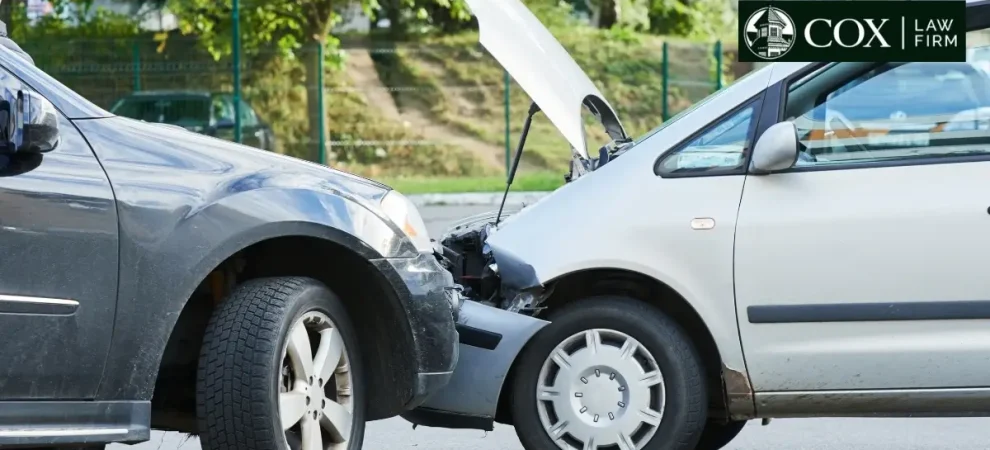Louisiana Car Accident Laws Explained

During the stressful aftermath of a collision, the last thing you need to worry about is the intricacies of Louisiana car accident laws. Victims often face mounting medical bills, lost wages, and uncertainty about their legal rights. Working with a personal injury attorney can help protect you while you try to recover damages during difficult times.
Steps To Take After a Car Accident
Acting promptly after a car accident in Louisiana protects both your health and legal rights. Start by moving to a safe location if it’s possible without causing further harm. Check yourself and others for injuries, and call emergency services immediately. Reporting the accident to law enforcement is essential because an official report provides a record for insurance and legal claims.
Exchange contact and insurance information with the other driver without admitting fault. Document the scene thoroughly by taking photos and noting weather, road conditions, and vehicle positions. Seeking medical attention is vital, even if injuries seem minor. Some symptoms might not appear immediately, and a professional evaluation can link injuries directly to the accident.
Lastly, notify your insurance provider as soon as possible to start the claims process. Following these steps can help protect both your safety and legal interests while you recover.
Louisiana Car Accident Laws
Louisiana follows a comparative fault rule, which allows parties to share responsibility for an accident. This rule affects the amount of compensation a victim can receive based on their percentage of fault.
Louisiana is also a “fault” state, meaning the at-fault driver’s insurance typically covers damages. Victims have the right to file claims directly with the responsible party’s insurer or pursue a legal claim.
Car accident cases often involve disputes over fault, which can complicate compensation claims. Insurance companies might attempt to shift blame or undervalue claims, leaving victims without adequate recovery. Clear evidence, like photos, witness statements, and police reports, is needed to counter these tactics.
Insurance and Compensation
Receiving a settlement from an insurance company is a central part of recovery after an accident. These elements are necessary for victims to make informed decisions and take the right steps to protect their interests. Important elements of the legal process include:
- Role of insurance companies. Insurance providers assess fault, calculate damages, and offer settlements. Their primary goal is to minimize payouts, making legal guidance crucial for fair treatment. Insurance adjusters review police reports, medical records, and witness statements to determine liability. Companies often use complex formulas and statistical models to value claims, which can result in lower initial offers.
- Compensation types. Victims may claim medical expenses, lost wages, property damage, and pain and suffering. Accurate documentation strengthens claims for these losses. Medical expenses include current treatment costs plus expected future care needs, while lost wages cover both missed work and reduced earning capacity. Pain and suffering compensation accounts for both physical and emotional trauma.
- Uninsured/underinsured motorist coverage. This form of insurance protects against drivers who lack sufficient coverage. Filing a claim involves your insurer and requires supporting evidence. This coverage comes in when at-fault drivers carry no insurance or have policy limits that are too low to cover damages. Claims often require proof of the other driver’s insurance status and documentation of injuries.
- Settlement vs. litigation. Many cases are resolved through insurance settlements; however, litigation remains an option if settlement offers are inadequate. Settlement negotiations can stretch out over weeks or months as both sides exchange information and adjust their positions. Court cases take longer but may get better results, especially with clear evidence and serious injuries.
- Factors affecting payouts. Policy limits, evidence strength, and fault percentages can all affect the compensation amount. Higher policy limits create more room for fair compensation, while strong evidence increases leverage in negotiations. Medical treatment choices, pre-existing conditions, and gaps in care can all affect claim values as well. Professional testimony often helps establish higher values for complex injuries.
Legal knowledge supports a strong insurance claim. Victims who understand their rights and options make better choices throughout the claims process. Working with experienced professionals can level the playing field against insurance companies and increase the likelihood of receiving fair compensation for all losses.
FAQs
What Happens if You Don’t Report an Accident Within 24 Hours in Louisiana?
If you don’t report an accident within 24 hours in Louisiana, it could lead to legal consequences. In Louisiana, drivers have to report an accident to law enforcement if it results in injury, death, or significant property damage. Reporting creates an official record, which can be important for insurance claims and legal proceedings in the future. Always request a copy of the police report for your records.
What To Do After a Car Accident in Louisiana?
After a car accident in Louisiana, move to a secure location if possible and check for injuries. Contact emergency services for medical help and to report the accident. Document the scene by taking photos of damages, road conditions, and any visible injuries. Exchange contact and insurance information with all parties involved. Avoid admitting fault and only provide factual information when speaking with law enforcement or insurance representatives.
What Types of Compensation Can Victims of Car Accidents Pursue in Louisiana?
The types of compensation victims of car accidents can pursue in Louisiana include damages for medical expenses, lost wages, pain and suffering, and property damage. In some cases, punitive damages may also apply if the at-fault driver acted recklessly or maliciously. Thoroughly documenting all losses strengthens a claim for compensation.
How Does Louisiana Handle Uninsured or Underinsured Drivers in Car Accident Cases?
Louisiana handles uninsured or underinsured drivers in car accident cases using the victim’s car insurance. The state requires drivers to carry UM or UIM coverage unless they opt-out. This coverage helps victims recover damages when the at-fault driver doesn’t have enough insurance. Filing a UM/UIM claim involves working directly with your insurance provider. Legal guidance can help you be treated fairly during this process.
Receive the Compensation You’re Owed With Cox Law Firm
Don’t let negligence go unchecked. Louisiana’s car accident laws empower victims to seek justice and ask for accountability. Take control of your situation by scheduling a consultation with Cox Law Firm. We’re here to provide clear advice and effective representation.
Request Your
Free Consultation
Fields Marked With An “ * ” Are Required

